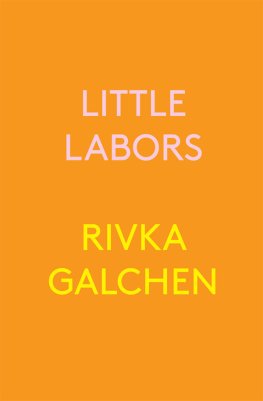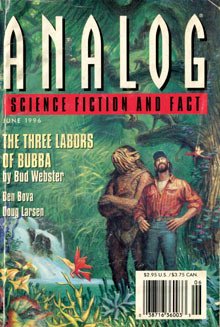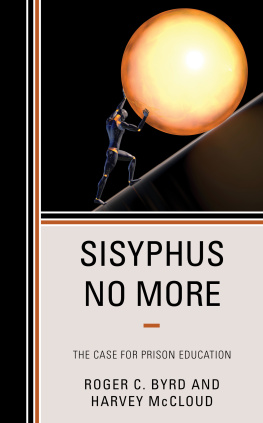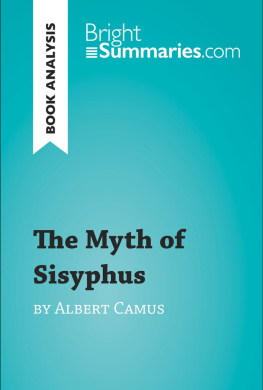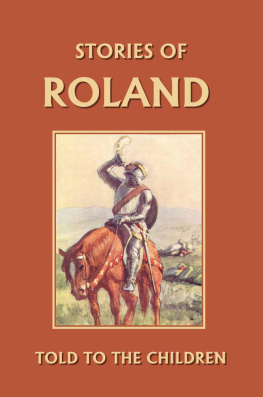The Labors of
SISYPHUS
The Labors of
SISYPHUS
The Economic Development of Communist China
Maria Hsia Chang
First published 1998 by Transaction Publishers
Published 2017 by Routledge
2 Park Square, Milton Park, Abingdon, Oxon 0X14 4RN
711 Third Avenue, New York, NY 10017, USA
Routledge is an imprint of the Taylor & Francis Group, an informa business
Copyright 1998 by Taylor & Francis.
All rights reserved. No part of this book may be reprinted or reproduced or utilised in any form or by any electronic, mechanical, or other means, now known or hereafter invented, including photocopying and recording, or in any information storage or retrieval system, without permission in writing from the publishers.
Notice:
Product or corporate names may be trademarks or registered trademarks, and are used only for identification and explanation without intent to infringe.
Library of Congress Catalog Number: 97-19298
Library of Congress Cataloging-in-Publication Data
Chang, Maria Hsia.
The labors of Sisyphus : the economic development of Communist China / Maria Hsia Chang.
p. cm.
Includes bibliographical references and index.
ISBN 1-56000-330-8 (cloth : alk. paper)
0-7658-0661-4 (paper : alk. paper)
1. ChinaEconomic policy1976- 2. ChinaEconomic conditions1976-. I. Title.
HC427.92.C3388 1997
338.951 dc21
97-19298
CIP
ISBN 13: 978-0-7658-0661-1 (pbk)
To A. James Gregor and Charles Elmo the love and light of my life
This book would not be possible were it not for the support and contributions of many individuals and institutions, to whom I owe my gratitude and profound appreciation.
Like most books, its contents are the distillation of many years of learning, research, and thought. In this case, the years began with the instruction I received in the political science department of the University of California at Berkeley, where I first learnt of China from Professor Chalmers Johnson, and of economic development from Professors Robert Price and Andrew Janos. What followed were some seventeen years of my own teaching at Washington State University, the University of Puget Sound, and the University of Nevada, Reno, where I benefited immeasurably from the students in my courses on China and on political economy.
The actual writing of this book began two years ago, the completion of which was entirely due to a Faculty Development Leave that the University of Nevada, Reno, graced me in Fall semester, 1996. For that leave, I am indebted to Professors Eric Herzik, Richard Ganzel, Bill Eubank, John F. Copper, and Yuan-li Wu for their letters of support. The books completion was also assisted by a grant from the Pacific Cultural Foundation of the Republic of China on Taiwan.
A scholarly book is only as good as the source materials it employs. For those materials, I am grateful to the thoughtfulness of colleagues as well as students who funneled various books, articles, and newsclips to me. Among them are Xiaoyu Chen, Dr. John Scire, Steve Rogers, Professors Leonard Weinberg and John Dobra, and Robert Rigney. I am also appreciative of the Chinese language materials I obtained from the libraries of Taiwans Institute of International Relations, as well as U.C. Berkeleys Center for Chinese Studies Library and the East Asian Library.
But the writing of a book needs more than source materialsit also depends desperately on the kindness of friends and colleagues. For that I am grateful to my brother, Dr. Peter H. Chang; my colleague, Professor Leah Wilds; my dear friend, Stephanie Helen Free; and our department secretary, Beverly Adams for their support, encouragement, and interest.
Most important of all, my undying gratitude goes to the two males in my life who make me laugh: my husband, Professor A. James Gregor, for the many years of peerless instruction, tireless support, wise counsel, and unfailing love; and to my boy, Charles Elmo, for his constancy, solace, occasional silliness, and devotion.
Maria Hsia Chang
Reno, Nevada
Contents
1
Introduction
It is almost half a century since the inception of the Peoples Republic of China (PRC). In that time, a charismatic leader ruled and died, leaving a wake of destruction in his quest to transform China. His utopian vision was repudiated, in actions if not in words, by his successor who would reform the country almost beyond recognition. In that time, too, the Soviet Union, mentor to the Peoples Republic, would dissolve after admitting that communism had failed. Half a century is more than enough time for a reassessment of the meaning and purpose of the Chinese Communist Revolution.
The attempt to study any country is a difficult undertaking. In the case of China, it is particularly problematic because of information shortfall. Although data gathering in the Peoples Republic has greatly improved since the initiation of economic reforms in 1979, as recent as August 1994, the Chinese government still decried the problem of officials and cadres falsifying statistics.
Information shortfall could account for narratives by Sinologists in the 1960s and 1970s that entirely misrepresented Maoist China. As examples, one scholar thought Chinas science and technology to be innovative. Another argued that Mao had discovered answers to a problem that plagued the United Statesthe unbridled expansion of unresponsive bureaucracy. Yet another saw virtues in the PRCs penological system and recommended it to Americans for emulation.
After his death, it was Chinese commentators who identified much in the China of Mao Zedong to be barbarous, irrational, brutal, destructive, wasteful, and oppressive. Few identified scientific innovation, the solution to bureaucratic indifference, and progressive penology as accomplishments of the system.
For their part, by the early-1980s, American academics similarly began to inquire why a movement of class and human liberation on the Chinese mainland devolved into one of the most oppressive systems in Chinese history. By that time, Maoist China was recognized as a totalitarian feudal fascism from which even decadent America had little to learn. Little evidence of merit was found in Maoist science, bureaucracy, or penology. What had passed for an understanding of China just a few years before was almost entirely abandoned or so significantly qualified as to reduce it to antiquarian interest.
Current efforts at understanding China have access to a richer repository of more credible evidence. International agencies now have contact with China through a variety of channels. So do journalists, social scientists, economists, artists, and intellectuals of a range of political persuasions. What emerges are far more nuanced impressions of a vast and variegated canopy.
There is no pretense that any single work has captured the evolving present in all its complexity and variety. Most analysts approach contemporary China with a recognition of their limitations. They understand that no account is pure, providing an exact description of some reality.
That overarching conception usually ascribes meanings and purposes to historical and political events. Political figures have motives and intentions, conscious or unconscious, that provide a scaffolding for an illuminating narrative. Those goals and intentions are historical projects that concatenate events. Given the inherent epistemological and methodological limitations of history and the social sciences, describing those meanings and presumed projects in any one narrative has more the character of art than science. Nevertheless, the scholar is obliged to make the near-quixotic effort. To do otherwise would be to surrender the self to a universe of mysticism and infinitely regressing subjectivity.




